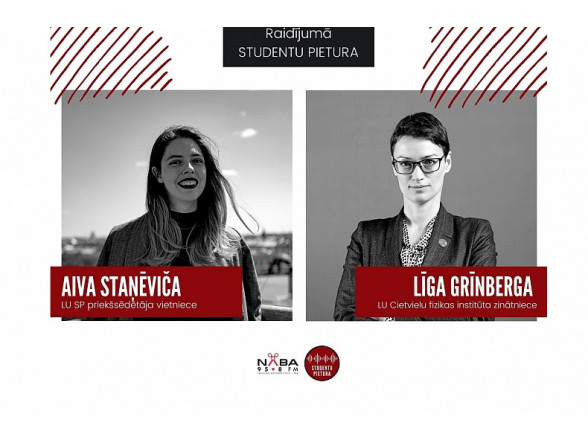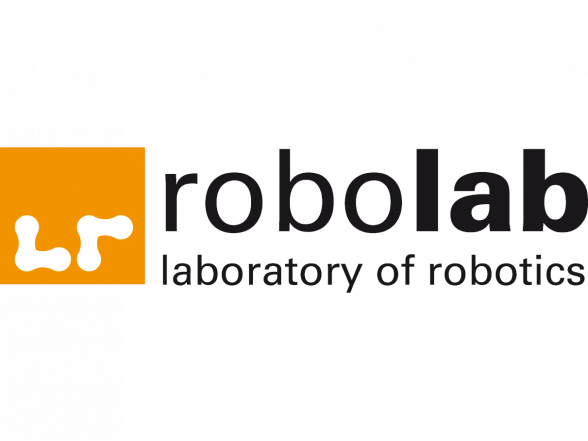In the special issue of student radio program "Student Stop", ambitious and successful women were invited to the conversation. One of them was Dr. phys. Līga Grīnberga - L´Oréal award for women in science laureate, researcher and Head of Information and Communication department of our institute. She shared her experience in creating a career path, as well as provided answers to various feminine and also more professional questions. During the interview, Līga answered questions about ISSP UL’s fields of activity, laboratories and the most important projects, as well as about the contribution to mitigation of Covid-19 effects.
In the interview, Līga said that she got into the field of physics relatively accidentally, but she does not regret it for a moment, because she likes to experiment, work with different equipment and see what is invisible to the naked eye. She believes that different stereotypes about women in physics and similar sciences exist and will exist; however, compared to many other countries outside Europe, Latvian women are free to choose what to study and where to work. In addition, Latvia should consider not only the involvement of women in the exact sciences, but also the interest of a larger number of men in the fields of social sciences. Līga recognizes the L´Oréal Award as a great recognition for her work in hydrogen storage research, which is a very topical issue and in the future, it can provide great change for the better.
In ISSP UL, in terms of gender equality there is space for improvement. According to the data available from 2020, gender balance of scientific and technical personnel has improved very slightly compared to the 3-year (2014-2016) average number - 26% women, now it is 30%. In 5-year period, the ISSP UL will strive to attract more female scientific and technical personnel to reach 37% of the total number. Data from 2019 shows that in Latvia in engineering and technology the proportion of female researchers is 34.2%.
Overall statistical data from 2019 shows that regardless the fact that females constitute the largest share of higher education students, still science and technical fields more often are chosen by males in Latvia. In 2019, totally 14 848 students acquired degree or qualification in higher education institutions of Latvia, of which females accounted for 65.2 %. However, females constitute only one third (29.5 %) of the science and technical field (life science, mathematics, IT, engineering, manufacturing and construction) graduates.
According to the statistical data from 2019, the number of doctorate holders was similar between both genders – 3 967 females and 3 830 males.
In terms of female share among researchers (scientists, professionals, managers and administrators) having doctorate, Latvia takes the top rankings among the EU countries. In 2019, females accounted for half (50.6 %) of Latvian researchers. The largest share of female researchers were occupied in the fields of humanities and arts (69.8 %), followed by medical and health sciences (66.2 %), social sciences (65.5 %), and agricultural and veterinary science (63.1 %). The largest share of male researchers was working in the field of engineering and technology (65.8 %) as well as natural sciences (52.3 %).
The radio program available in Latvian from https://naba.lsm.lv/lv/raksts/studentu-pietura/karjeras-celu-veidojot...-sieviesu-dienas-specializlaidums.a141281/
Statistical data https://stat.gov.lv/en/statistics-themes/population/gender-equality/6301-gender-equality-education-and-science



